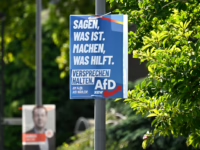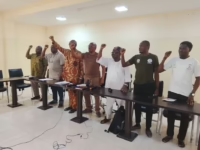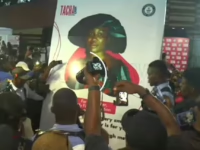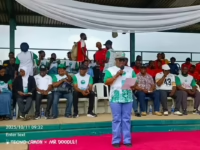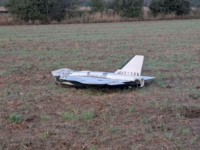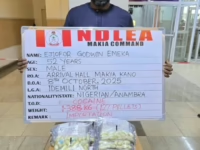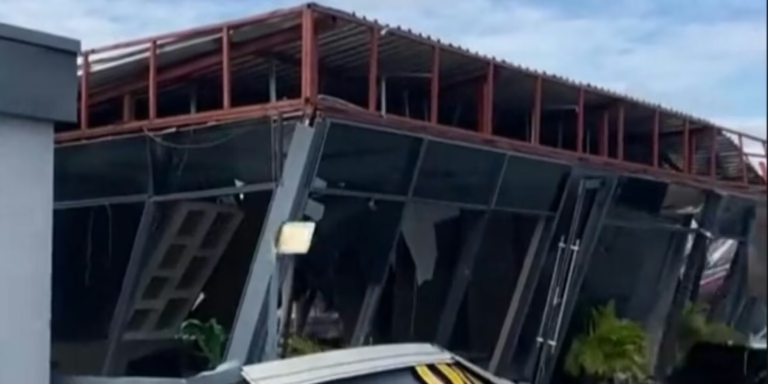The Lagos State Government has recently taken down a well-known luxury car showroom owned by social media personality and automobile dealer Waris Olayinka Akinwande, popularly referred to as ‘Ola of Lagos’.
This event unfolded on Saturday and was initially revealed to the public through a viral TikTok clip shared by fellow car dealer Ibilo, who documented the aftermath of the demolition.
The video’s caption stated, “Lagos State Government Demolishes OOL Autos. Heavy one today.”
At the time of reporting, no official explanation had been provided by the state authorities regarding the reasons behind the demolition, leaving the cause open to speculation.
Nonetheless, social media discussions widely speculated that the building was dismantled because it was constructed beneath a high-voltage power line, which is against safety codes and urban planning laws.
One TikTok commentator, Adekunle Autoparts, remarked, “They took it down because it was built under a power line.”
Another user, Sisi Noni, shared a nuanced perspective, acknowledging the safety concerns while criticizing the government’s seemingly harsh method.
“I don’t mean to sound negative, but the first time I saw that building, the high-tension wires immediately caught my attention. Yet, it seems like money shields people from consequences in this country,” she noted.
“Constructing beneath high-voltage lines is extremely dangerous. However, they could have requested him to relocate instead of outright demolition, allowing him to salvage some materials for reuse at a new location.”
This demolition is part of a larger crackdown by the Lagos State Ministry of Environment and Water Resources targeting unauthorized structures throughout the state.
On the same day, authorities also razed at least 17 illegally built houses situated on the Right of Way (RoW) along the Ikota River corridor in Lekki.
Tokunbo Wahab, the Commissioner for Environment and Water Resources, who led the enforcement team, cautioned residents against activities that threaten the environment or block natural waterways.
“We had halted these activities previously, but recent reports indicated a resurgence of encroachment, including attempts to sell these illegal properties to unsuspecting buyers,” Wahab explained.
He emphasized that this operation is part of the state’s ongoing initiative to restore and safeguard flood-prone zones, warning that those responsible for unlawful reclamation and construction will face legal action.
Investigations at the Lekki site uncovered multiple ongoing land reclamation efforts, sand-filling projects, and partially built structures directly on natural watercourses-actions the government identified as significant environmental hazards.









